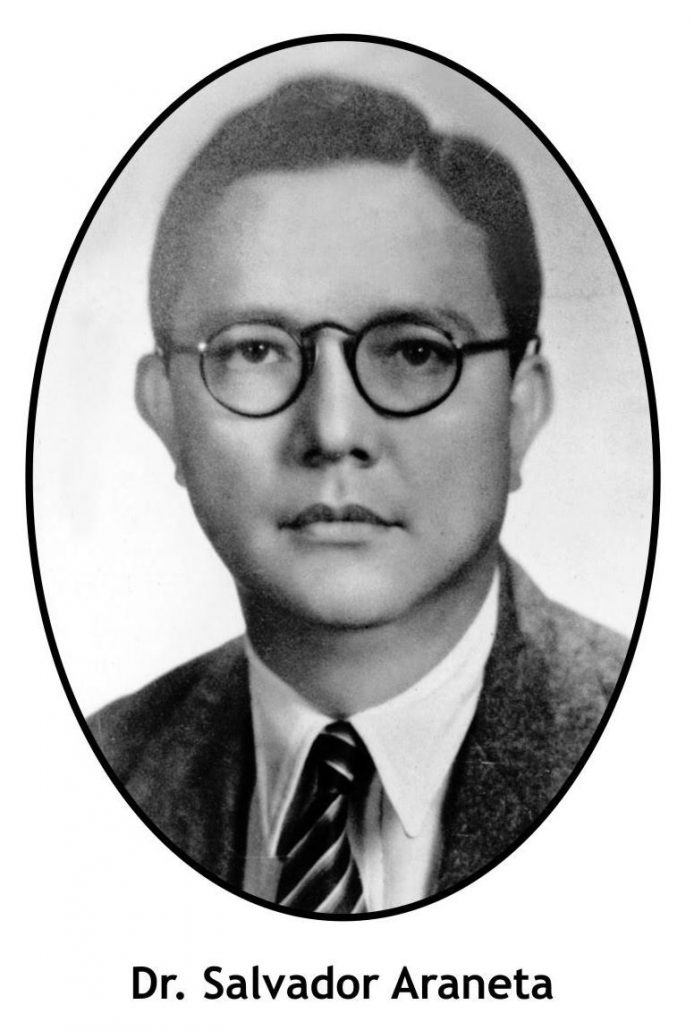 THE ARANETA PLAN called for a New Deal, similar to what President Franklin D. Roosevelt used to fight the Depression in the United States. Not only did Araneta propose giving President Magsaysay the power to declare a state of emergency with dictatorial powers, but he also included in his plan a P2-billion budget. The former was alarming to most, so Araneta was quick to remove the plan of granting the President emergency powers.
THE ARANETA PLAN called for a New Deal, similar to what President Franklin D. Roosevelt used to fight the Depression in the United States. Not only did Araneta propose giving President Magsaysay the power to declare a state of emergency with dictatorial powers, but he also included in his plan a P2-billion budget. The former was alarming to most, so Araneta was quick to remove the plan of granting the President emergency powers.
On the implementation of the latter, Araneta placed in each budgetary allotment the condition “when funds are available.” Araneta’s plan called for a program of employment and production through private participation and government initiative. “Alas, the government only had a P700-million budget for a two billion-peso job.”
But if at least one billion pesos had been released “if and when it is available,” Araneta suggested the following breakdown of the funds:
* P300 million for a Loan and Guarantee Fund for private investors
* P50 million for Agricultural Products Price Support
* P100 million for Expansion of Philippine Overseas Shipping
* P30 million for subsidies for small farmers in the form of fertilizers, development of lime deposits and natural fertilizers and the establishment of fertilizer factories
* P400 million for high-priority public work projects to provide direct employment, and
* P120 million for increased capitalization in basic industries
On another note, the government would only step in if the basic industries required were not attractive to private enterprise.
Araneta would complement his program with calls for import controls to legalize the import control system enforced by the Central Bank for the last two years. He also called for partial decontrol of foreign exchange and the grant of import certificates to export producers.
Araneta reminded Cuaderno and the Conservatives that Roosevelt devalued the dollar, pump-primped the economy, and created the Civilian Conservation Group as temporary measures to solve unemployment in America.
People thought that Roosevelt was bringing the country to bankruptcy when his budget in 1934 was P5 billion. When Truman came to office, Truman’s budget ballooned and rose to P70 billion dollars.
Without the New Deal for Filipinos, Araneta predicted that the jobs that will be created will not be enough considering the increase of population.
Araneta added that while private initiative is not able to provide all the new jobs required, it is the “duty of the government to lessen the gap.” A job created by the government is not just one job because of its multiplier effect.
To win the war on unemployment, the United States, Great Britain and Germany embarked on an armament project made possible by money created by the State and by the banks. Winning the war was never a question of money.
Araneta insisted that “we will never win the war on unemployment and poverty unless we use the tools employed by other countries.”
To win the war, Araneta, who observed and studied what other nations were doing to be on top of the ladder, added that the Central Bank of Japan issued new currencies for medium- and long-term loans to finance capital investments. He furthermore said that this was never practiced in the Philippines.
Another noteworthy action by the Central Bank in Japan was the granting of loans to private industry and not to government for roads and public works where lavish spending caused inflation.
There never was a New Deal for Filipinos because of this, according to Magsaysay’s biographer, Jose V. Abueva, some of the effects was the decline of growth in real wages for unskilled workers in Manila by 18 percent, and the decrease of the yearly growth rate of paid-in capital of newly registered firms to around P38 million.
There was also no per capita increase in rice and corn production. (To be continued/PN)

